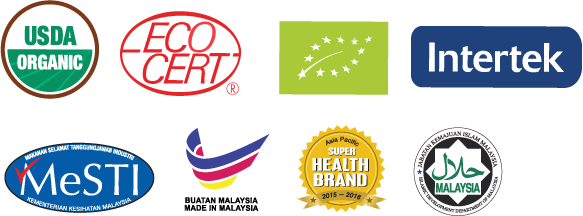Ethically Produced Honey
Ethically Produced Honey- Organic Certified Honey
We believe that having a good tasting honey product is worth nothing if the methods used to produce it are not in line with nature or unethical methods.
Our main goals with Borneo Acacia® is to promote sustainable, natural and regenerative beekeeping practices while sourcing some of the most exquisite honeys from around the world.
In order to guarantee that all our borneo acacia honey products are harvested sustainably we decided to work with international organic certification bodies, laboratory and organic beekeepers which follow certain guidelines when it comes to bee management and hive placement.
We find that the rules established by the European Union are a good start point so that we can set standards. The European Union has been the major contributor to the establishment of organic beekeeping guidelines and other countries have followed suit.
Certified organic honeys are, by definition, associated to better and more sustainable beekeeping practices. Beekeepers who follow guidelines for organic and natural honey production are in more synergy with the environment around them and with the health of their bees. We only harvest honey when there is surplus, this way bees are guaranteed enough food for the winter months and do not need to be fed with artificial substitutes, a very common practice in traditional beekeeping methods.

The main points on the European Union Regulation for Organic Beekeeping are:
- Apiaries must be placed in areas (approximately 12.5 sq. mi. or 28 km2) surrounded by native vegetation or organic operations, free of GMOs, pesticides, pollution, cities and busy roads.
- The Beekeepers leave enough honey and pollen for the bees to feed on until next season. Artificial feeding must be avoided at all costs. In case of life threatening situations, beekeepers are allowed to feed their bees with organic products. Bee Seasonal encourages beekeepers to save organic honey and pollen from past harvests and feed that to the bees if necessary.
- Practices that cause mutilation, pain, destruction of brood, larvae and bees are prohibited.
- Hives can only be relocated with permission of the certification agent.
- No use of chemical glues and plastics for hive construction. Hives must be built using recyclable natural occurring material such as wood.
- No chemical residues can be used in and around the hives (synthetic pesticides or other materials such as cleaning products or repellents, antibiotics or synthetic medicine, etc.)
- Honey harvesting must be done without use of synthetic repellents. Destruction of bees in the combs as a method associated with the harvesting of beekeeping products is prohibited. Both removing of supers and honey extraction must be documented.
